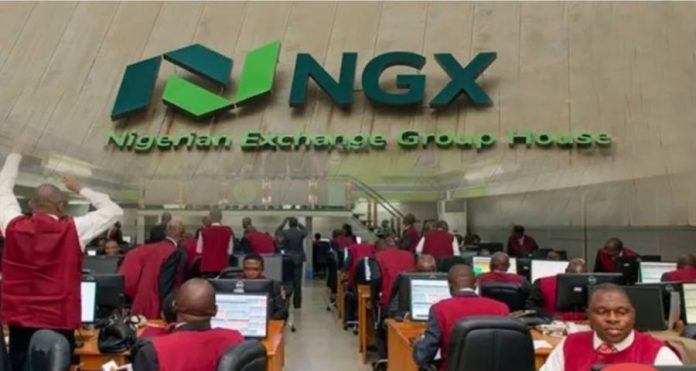BY BAMIDELE FAMOOFO
Equities trading at the Nigerian Exchange Limited closed bearish on Tuesday, extending the decline from the previous week as most Airtel Africa Plc shares put up for sale failed to find buyers.
Accordingly, the index’s year-to-date performance plummeted to 1.37 percent, even as the Exchange printed a higher number of losers (28) than gainers (4). CAVERTON topped the gainer’s chart, growing by 8.25 percent, while Airtel Africa Plc led the laggards’ chart, declining by 10.00 percent.
Performance across the sub-sector gauges tracked was negative except for the NGX Oil/gas index, which remained unchanged. Tier-1 banks pushed the decline in the NGX Banking index (-0.34%) as Access Corporation Plc (-2.33%), and GTCO Plc (-0.41%) recorded losses in their share prices, while Royal Exchange Assurance Plc (-9.09%), AIICO Plc (-5.00 %), PRESTIGE (-5.00%), and WAPIC (-2.50%) led the decline in the NGX Insurance index (-1.83%).
Notably, the NGX Consumer Goods and NGX Industrial indices fell by 0.16 percent and 0.57 percent, respectively.
In the broad and narrow markets, the NGX Premium, NGX Mainboard, and NGX-30 indexes decreased by 16, 313, and 179 basis points, respectively.
Meanwhile, trading activity improved, with total trades, volume, and value increasing by 17.39 percent, 545.60 percent, and 148.31 percent, respectively, to 4,286 deals, 1.72 billion units, and N4.79 billion. In terms of volume, TRANSCORP was the most active stock, with 1.55 billion shares worth N2.10 billion changing hands in 162 deals.
At the foreign exchange market, Naira strengthened against the greenback, trading higher at N462.88 (from N463.25) at the Investors and Exporters (I&E) windows.
Similarly, the parallel market appreciated by 0.40 percent to N744 (from N747).
NIBOR fell across the board for all maturities tracked as gauges of money market stress eased and banks with liquidity sought lower rates.
However, short-term benchmark rates, such as the open repo rate (OPR) and the overnight lending rate (OVN), increased to 18.63 percent (from 18.50%) and 19.00 percent (from 18.88%), respectively.
Meanwhile, NIBOR moved in mixed directions despite the average secondary market yield on T-bills expanding to 8.18 percent.

